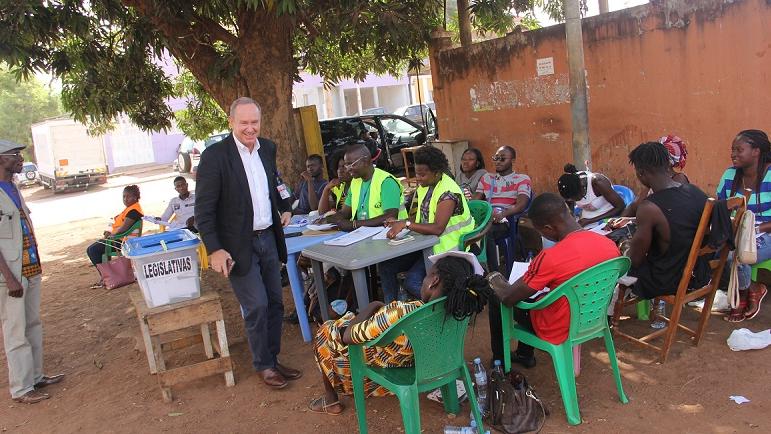The second most voted party was the Movement for Democratic Alternation (MADEM-G15) with 27 mandates, followed by the 21-term Social Renewal Party (PRS), Union for Change (UM) and Party for New Democracy (PND) with 1 mandate each respectively.
On the eve of the publication of the provisional results the leaders of the four most voted political formations in these elections of March 10 signed agreements of parliamentary and governmental incidence, justifying the need to guarantee stability to the country.
The four parties - PAIGC, APU, PND and UM - together make up 54 members, out of 102 in Parliament.
More than 761,000 Guinean voters were called to the polls on March 10 to elect a new parliament among the candidates presented by 21 political parties. Of the 761,676 registered voters voted 645,085 voters, or 85 percent of voters went to vote.
According to some Guinean analysts, these elections are one of the most disputed in the country's history, but despite that, both the campaign and the balloting took place in the most tranquil, non-violent way.
Following the announcement of the results, UN Deputy Special Representative and United Nations Resident Coordinator David McLachlan-Karr said the election was well organized and with extraordinary civic participation. "The Guineans have voted for a new parliament, which we hope will have a better gender parity. My message to the newly elected is that they put Guinea-Bissau's interests above all other personal considerations. It is important to have a functioning parliament that enables citizens to have access to essential services such as health and education, "said DSRSG David McLachlan-Karr
The director of the Department of Political Affairs and Peacebuilding for West Africa, Abdel Fatau-Musah, who was in the country to follow the elections, said: "With the elections, there will be a new National Assembly, a legitimate will emerge from the process, and conclude with a presidential election and, after these processes, the country will have stable institutions. So, Guinea Bissau will build its own future, its destiny will be in its own hands.
International observers from the African Union, ECOWAS and CPLP, as well as the Electoral Monitoring Group, formed by several civil society networks in Guinea-Bissau, considered these elections to be free, fair and transparent and without major incidents. Both the African Union mission and the national monitors have recommended that the electoral law be amended to allow the participation of national observers in future elections.
Aissatu Camara Ndjai, vice president of the Women's Political Platform (PPM), who has been a member of the electoral monitoring cell, praised the massive participation of women in this electoral process but acknowledged the weak implementation of the parity law by political parties. "In the forthcoming elections we will work harder with both political parties and communities to have more women in decision-making places," added Aissatu Ndjai.






